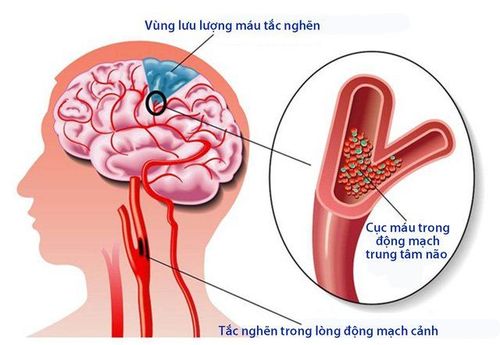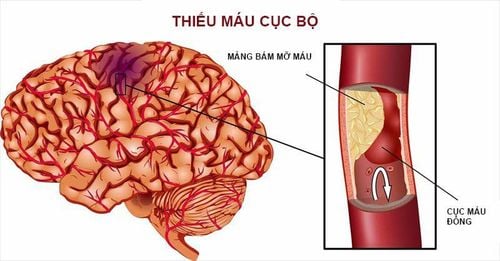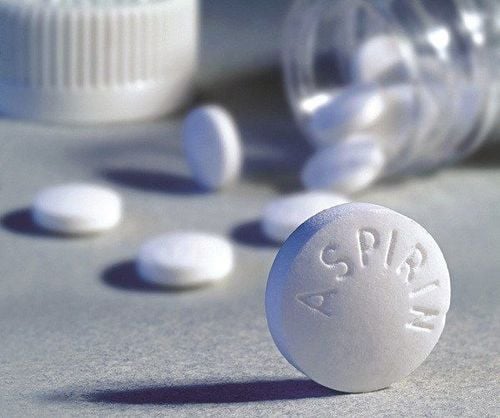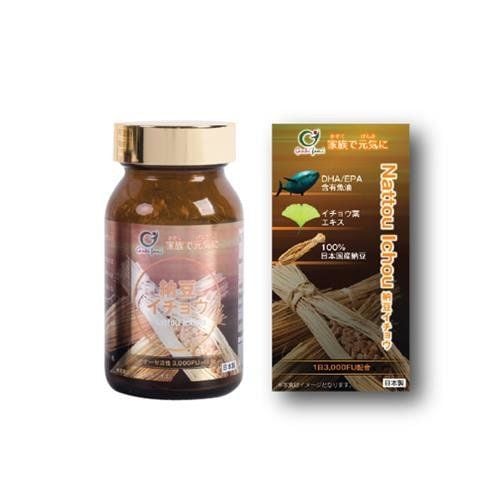This is an automatically translated article.
The article is professionally consulted by Master, Doctor Huynh An Thien - Department of Medical Examination & Internal Medicine - Vinmec International General Hospital Da Nang.Mild or severe cerebrovascular accident affects health, so you should not be subjective with the disease even in mild form. It is very important to recognize signs of minor complications to prevent dangerous complications of the disease.
1. What is a mild cerebrovascular accident?
Mild cerebrovascular accident, also known as transient ischemic attack, is a type of cerebrovascular accident with rapid recovery, recovery within minutes to a few hours and no sequelae of paralysis. However, it is still one of the leading risk factors for true cerebral ischemia and also increases mortality in the first years after stroke.Trắc nghiệm: Bạn có hiểu đúng về huyết áp cao không?
Huyết áp cao còn được gọi là kẻ giết người thầm lặng vì bệnh thường không có triệu chứng. Thiếu hụt kiến thức về huyết áp cao có thể làm cho tình trạng bệnh trở nên trầm trọng hơn. Dưới đây là những câu hỏi trắc nghiệm vui giúp bạn hiểu đúng về bệnh cao huyết áp.2. Signs of a mild stroke
severe and sudden headache; Dizziness, lightheadedness, sudden tinnitus. If the patient is standing, one leg will be completely weak and unsteady; One hand cannot grasp the object firmly and drops it, finds it difficult to pick up the dropped object; Sudden speech disturbances, including minor signs of distress such as difficulty in speaking or slurred speech, that are difficult for the listener to understand. Symptoms of language disorder may only last for a few minutes, but it can also last for a whole day before a serious accident, at which time the patient is no longer able to speak; There is a feeling of numbness in the fingertips, legs and upper body like a needle, ants sting suddenly; The patient sometimes completely loses control of himself, as if speaking, stops, drops the object he is holding in his hand without realizing it, only a few seconds later he suddenly remembers and picks it up; Sudden intellectual disturbance, the patient suddenly loses orientation in space and time for a few minutes or hours, becomes deaf or forgets for a short period of time; Complete or partial loss of vision in one or both eyes for a few seconds.3. Dangerous complications of mild cerebrovascular accident

Patients with mild cerebrovascular accident will quickly recover on their own, so they are often subjectively not examined. However, this is an extremely serious mistake, if the disease is not monitored and treated in time, according to the instructions of the doctor, it will increase the risk of stroke and ischemic stroke. Here are the dangerous complications of a mild stroke that may occur:
About 10-15% of patients will have a stroke within 3 months, of which, half of the group has a stroke. about 48 hours after a mild stroke; The most dangerous case is that the anemia is really severe, which can lead to coma and leave severe sequelae such as hemiplegia, memory loss, cognitive disorders, and even death. Therefore, although a mild stroke does not cause subsequent damage, it can nevertheless be a warning sign that a true infarction may occur in the future if the disease is not prevented.
4. How to treat mild stroke
Mild cerebrovascular accident does not cause permanent damage, but when symptoms appear, the patient should not be subjective because it is impossible to determine whether it is a sign of a mild or serious stroke.
When a patient shows signs of a minor stroke mentioned above, it is necessary to call 911 first, even if the symptoms appear and disappear for a few minutes. Early management and prevention of stroke, especially in high-risk patients (over 60 years of age), with a history of hypertension, diabetes, speech disorders, hemiplegia lasting longer than 60 minutes will contribute to a reduction in the actual rate of stroke later in life.
The main treatment method for mild cerebrovascular disease is the use of anticoagulants. Among them, aspirin is commonly prescribed because it reduces the ability to bind and form blood clots. In addition, patients may be prescribed to use a combination of drugs such as aggenox, clopidogel, heparin... However, when using, patients should note that they must take the drug as directed by the doctor, because of the different types of drugs. All of these drugs have strong side effects and medicinal properties, as well as a high potential for interactions with other drugs, including over-the-counter drugs.
5. Prevention of mild cerebrovascular accident
To prevent mild cerebrovascular disease, patients need a diet to prevent blood thinning, specifically:
Increase the intake of fruits rich in potassium and vitamin C, to help improve endothelial function , prevent the formation of blood clots in the veins, prevent stroke. For example banana, orange, grapefruit,...; Increasing the intake of whole grains helps to reduce the risk of stroke. For example beans, nuts such as almonds, walnuts,...; Increase the addition of vegetables, tubers and fruits that contain a lot of fiber and folic acid to help prevent mild cerebrovascular accidents, reduce cholesterol, and increase blood circulation. For example cauliflower, dark green vegetables; Supplementing with saturated fats has the effect of preventing blood clots. For example sesame oil, soybean oil, tuna oil, mackerel, sardines...; Spices that help prevent stroke such as garlic, ginger, and pepper are recommended; Limit the use of foods rich in vitamin K such as liver, egg yolks, parsley, asparagus, strawberries, kiwi, olive oil; Limit the use of foods high in salt, rich in protein and fat such as red meat, animal organs... >> See also: Nattou Ichou health food by Pharmacist, Master Pham Thi Kim Dung - Pharmacist Mixing drugs - Pharmacy Department - Vinmec Times City International General Hospital

Regarding the exercise regime, patients with mild stroke need to:
Change lying position to limit inflammation and infection in severe cases; Regularly massage muscles and move joints of hands and feet to circulate blood and avoid stiffness; Help patients exercise to quickly recover. Cerebrovascular accident (also known as stroke) needs to be recognized early and take appropriate care to prevent the disease from progressing and causing serious consequences, leaving severe sequelae. Currently, Magnetic Resonance Imaging - MRI/MRA is considered a "golden" tool to screen for brain stroke. MRI is used to check the condition of most organs in the body, especially valuable in detailed imaging of the brain or spinal nerves. Due to the good resolution and contrast, MRI images allow to detect abnormalities hidden behind bone layers that are difficult to detect with other imaging methods. MRI can give more accurate results than X-ray techniques (except DSA angiography) in diagnosing brain diseases, cardiovascular diseases, strokes,... Moreover, the process MRI scans do not cause side effects like in X-rays or computed tomography (CT).\
Vinmec International General Hospital currently owns a 3.0 Tesla MRI System, which is equipped with state-of-the-art equipment by GE. Healthcare (USA) with high image quality, allows comprehensive assessment, does not miss the injury but reduces the time taken to take pictures. Silent technology helps to reduce noise, create comfort and reduce stress for the client during the shooting process, resulting in better image quality and shorter imaging time. With the state-of-the-art MRI system With the application of modern methods of cerebral vascular intervention, a team of experienced and well-trained neurologists and imaging specialists, Vinmec is a prestigious address for stroke risk screening and screening. reliable goods.
In the past time; Vinmec has successfully treated many cases of stroke in a timely manner, leaving no sequelae: saving the life of a patient suffering from 2 consecutive strokes; Responding to foreign female tourists to escape the "death door" of a stroke ;...
Please dial HOTLINE for more information or register for an appointment HERE. Download MyVinmec app to make appointments faster and to manage your bookings easily.














